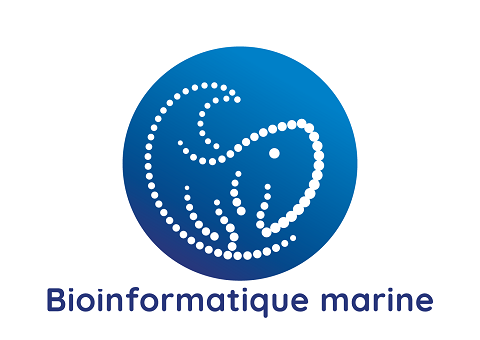eDNA sequencing of water, plastic and tissue of Pacific giant clam (Tridacna maxima) in a mesocosm approach for the P3M project, 2023
Here, our study aimed to first assess the influence of plastic on the bacterial community belonging to water, plastic and the microbiome of the giant clam and on the organism's physiology of this putative sentinel species. Our second objective was to identify bacteria whose abundance varies significantly with plastic concentration. Overall, this study will fill the gap towards a better understanding of the impact of plastic pollution on bacterial community assemblages in both inert and living environments.
Simple
- Date (Creation)
- 2023-05-25
- Date (Publication)
- 2024-04-01
- Identifier
- FR-330-715-368-00032-IFR_BIOINFO_20230601_RMPF_MG_P3M_TRIDACNA_MAXIMA
- Credit
- Ifremer (RMPF)
Author
IFREMER
-
Goulais Maeva
Centre Bretagne - ZI de la Pointe du Diable - CS 10070 - 29280 Plouzané
,
Brest
,
France
Author
IFREMER
-
Saulnier Denis
+689 40 54 60 99
Centre Océanologique du Pacifique - Vairao - BP 49 - 98179 Taravao - Tahiti - Polynésie Française
,
Tahiti
,
France
+689 40 54 60 52
+689 40 54 60 99
Author
IFREMER
-
Galgani Francois
+689 40 54 60 99
Centre Océanologique du Pacifique - Vairao - BP 49 - 98179 Taravao - Tahiti - Polynésie Française
,
Tahiti
,
France
+689 40 54 60 87
+689 40 54 60 99
Author
IFREMER
-
Mitta Guillaume
Centre Océanologique du Pacifique - Vairao - BP 49 - 98179 Taravao - Tahiti - Polynésie Française
,
Tahiti
,
France
Author
IFREMER
-
Rouxel Julien
Centre Océanologique du Pacifique - Vairao - BP 49 - 98179 Taravao - Tahiti - Polynésie Française
,
Tahiti
,
France
Author
IFREMER
-
Basset Caline
Centre Océanologique du Pacifique - Vairao - BP 49 - 98179 Taravao - Tahiti - Polynésie Française
,
Tahiti
,
France
- GEMET - INSPIRE themes, version 1.0
-
- Habitats and biotopes
- Thèmes Sextant
-
- /Biological Environment/Bioinformatics
- Type de jeux de donnée ODATIS
-
- /Sequences
- ODATIS aggregation parameters and Essential Variable names
-
- Bioinformatics
- Use limitation
- CC-BY (Creative Commons - Attribution)
- Access constraints
- License
- Use constraints
- License
- Metadata language
- English
- Character set
- UTF8
- Topic category
-
- Environment
N
S
E
W
))
- Begin date
- 2022-07-17
- End date
- 2022-09-13
- Reference system identifier
- EPSG / WGS 84 (EPSG:4326) / 8.6
- Distribution format
-
-
(
)
-
(
)
- OnLine resource
- /home/ref-bioinfo-public/ifremer/rmpf/P3M ( NETWORK:LINK )
- OnLine resource
- Download link ( WWW:DOWNLOAD-1.0-link--download )
- OnLine resource
- Publication ENA ( WWW:LINK-1.0-http--link )
- OnLine resource
- Digital Object Identifier (DOI) ( WWW:LINK-1.0-http--metadata-URL )
- Hierarchy level
- Dataset
- Statement
- This study aimed to evaluate the impact of incrementally increasing plastic concentrations on the bacterial compartment in marine environments. We reproduced simplified tropical ecosystems in 9 seawater mesocosms, then immersed different quantities of macroplastics from pearl farm (copolymers of PP and PE). We then monitored the bacterial communities in three compartments: the water column, the Tridacna maxima and the plastic biofilm to identify the threshold at which modifications in the bacterial compartment occur. The objective was to identify early markers among impacted bacteria, indicative of potential risks exceeding critical thresholds for marine microbial fauna. Despite finding no influence of plastic concentration on bacterial diversity, significant impacts were observed for bacterial assemblages based on time and sample type. Digging deeper, our analysis at the individual bacterial scale revealed that at the highest plastic concentration (5.46g/L), a positive correlation was observed for 29 bacterial genera. This suggests that certain bacterial genera thrive at extreme concentrations of plastic, leading to an overabundance of these specific bacteria referred to here as candidate ASVs. The overabundance of candidate ASVs in ours mesocosms could be attributed to imbalanced competition relationships between bacteria, favouring genera less sensitive to environmental pollutants. Some of these bacteria have known ecological functions, including plastic degradation and pathogenicity, aligning with prior studies warning of the dangers associated with macroplastics in water, potentially promoting the emergence of pathogenic families by serving as substrates and modifying microbial interactions.
- File identifier
- 61da6771-38a5-4043-89af-87209ca51879 XML
- Metadata language
- English
- Character set
- UTF8
- Hierarchy level
- Dataset
- Date stamp
- 2024-05-02T10:11:35.436Z
- Metadata standard name
- ISO 19115:2003/19139 - SEXTANT
- Metadata standard version
- 1.0
Point of contact
IFREMER
-
Goulais Maeva
Centre Bretagne - ZI de la Pointe du Diable - CS 10070 - 29280 Plouzané
,
Brest
,
France
Overviews

Spatial extent
N
S
E
W
))
Provided by

Associated resources
Not available
 Catalogue PIGMA
Catalogue PIGMA